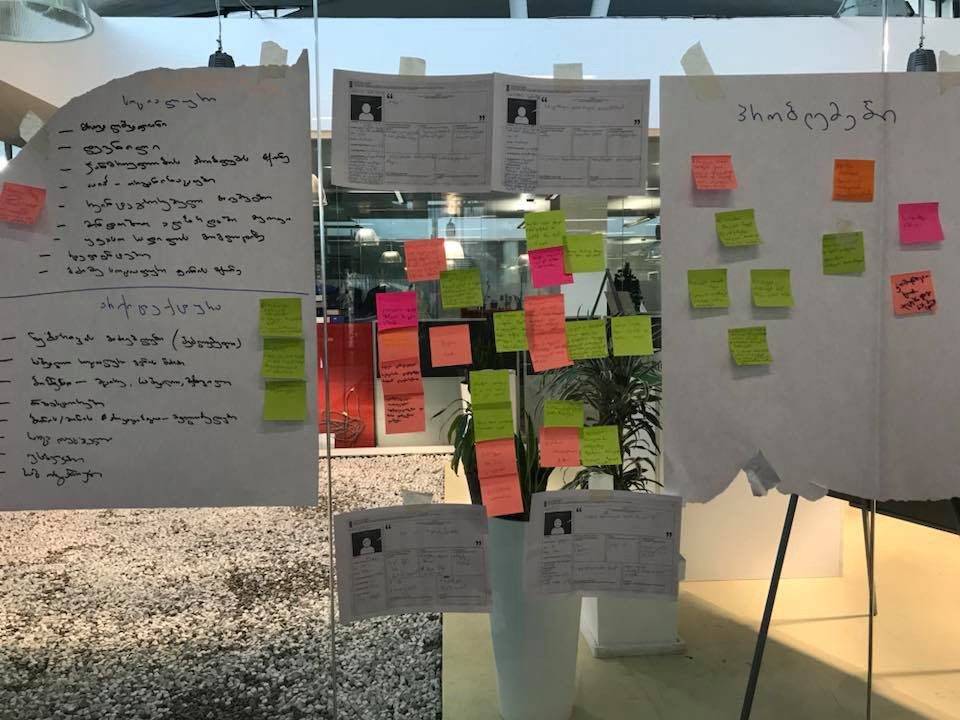From Paperwork to Innovations
- Istream
- May 28, 2020
- 3 min read

Design workshop of Rustavi City Hall civil servants at Public service Hall, with UNDP Georgia, PSDA Service Lab and ForSet (21 dec 2017); Photo: Khatuna Sandroshvili
Were did we start?
For me this journey starts at the City Hall of post-industrial Rustavi, Georgia, The Department of Business Correspondence with the front office, to be precise.
Things used to be little bit chaotic there, but having very responsible employees balanced almost everything.
What did we struggle with?
· Visitors to the City Hall could pass through the reception desk and knock and the door of any department to request clarification on services. Our colleagues are open and do not mind meeting visitors, but it takes their time from their main obligations.
· We kept all records on paper, including citizen inquiries, city hall responses and internal document movement. Well sorted and well taken care of, but takes awful lot of paper and time.
We knew we had to change.
When did the change start?
· When the City Hall started working with Public Service Development Agency (PSDA) Innovation ServiceLab and UNDP Georgia to learn about the experience of other agencies or government, their new methods and approaches solving similar problems. Rustavi City Hall and PSDA joined hands for the introduction electronic management systems in our operations. And Rustavi-PSDA Servicelab-UNDP partnership gave space for additional learning on how we work with data, how we plan our work at the strategic level and how we design services together with people (all the new words in our vocabulary — Foresight, Data, Design Thinking)
Well, we started having even more questions:
What does separation of front and back offices mean? The only reason why we thought citizens should not visit back office was the time issue — their conversations and consultations with back offices employees was taking too much time, so servants had no longer time for doing their actual job.
What does eco- friendly system mean? Why do we need a system that needs less paper and most documents are online? Is that safe? Maybe one day, everything that we have online accidentally deletes? System breaks down? What should we do?
Why do we need a system that does not allow us to make changes to documents? What if we made a mistake? What if we want to correct it?
Why do we need innovations? We are having so many problems, we have so much paperwork to do, we DO NOT have time for that. Isn’t our key problem lack of financing? Full budget can solve all problems.
Where we are now in search of answers:
Six months ago we could not even imagine we would see Rustavi Mayor’s order establishing the first local governance Innovations Hub in Georgia giving us space to seek the answers to our questions and translate them into urban solutions together with our citizens, entrepreneurs, educators, local and international partners.
The Hub is staffed with city hall’s public servants, a bunch of young enthusiasts believing in the new way of doing business, learning to look at problems as opportunities and knowledge gaps into learning perspectives. We are learning and applying the knowledge on current trends into our every day work — how to make our decisions better informed by looking at the data, align our current steps with the vision of the city’s future which is still being co-created through public consultations, learn on the new ways to listen to people, and work with people. Our friends and mentors from UNDP Georgia Innovations, PSDA ServiceLab, Forset and PracowniaMiejska (Urban Workshop) are guiding us in this experience.
We are at the very start of our journey. I decided to initiate the series of blogs to tell you where we find our answers, to tell the story of Rustavi, post-soviet, post-industrial city turning into the City of the Future.
More to come …




Comments